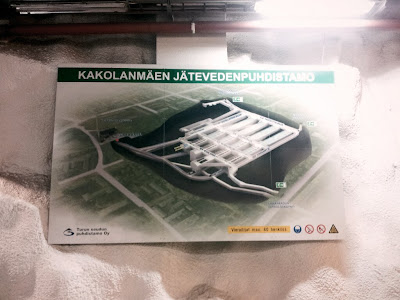During PURE project implementation time, three project partner wastewater treatment plants were deleted from the HELCOM hot spots list. These were Kohtla Järve in Estonia and Pomorzany and Zdroje in Szczecin, Poland. Project partners from Riga and Jurmala, Latvia and from Brest, Belarus focused their activities on investing. Currently, Riga and Brest wastewater treatment plants have a functioning chemical phosphorus removal system and Jurmala wastewater treatment plant have equipment that helps to control the biological phosphorus removal. With chemical phosphorus removal, annually over 100 tons of phosphorus is removed from the wastewaters of Riga. In addition, even up to 141 tons of phosphorus can be precipitated from the untreated wastewater in Brest with the current equipment.
 In general, municipal sludge was very interesting topic. Both technical details as well as legislative issues of disposal were vividly discussed. After the project, it seems that municipal sludge continues to be a hot topic all around the Baltic Sea. It seems that wastewater treatment plants can be old or new, but challenges occur anyway. One of the PURE project results that we are very proud of is the Book of "Good Practices in Sludge Management". It presents technical solutions used in municipal wastewater sludge handling including disposal processes. The book compares the results achievable by application of different techniques, explores relevant emerging technologies and legal limitations for the further sewage sludge use.
In general, municipal sludge was very interesting topic. Both technical details as well as legislative issues of disposal were vividly discussed. After the project, it seems that municipal sludge continues to be a hot topic all around the Baltic Sea. It seems that wastewater treatment plants can be old or new, but challenges occur anyway. One of the PURE project results that we are very proud of is the Book of "Good Practices in Sludge Management". It presents technical solutions used in municipal wastewater sludge handling including disposal processes. The book compares the results achievable by application of different techniques, explores relevant emerging technologies and legal limitations for the further sewage sludge use. One of the PURE projects’ outputs is a new benchmarking service for municipalities and water companies. Service is called PURE Benchmark online database and it contains wastewater treatment information from 30 municipalities and 3100 wastewater treatment plants around the Baltic Sea region. The user-friendly and practical online tool was developed by local users for practical needs like reporting and anonymous benchmarking. The database monitors also the level of wastewater treatment and technology used in the region.
Project organised six events that gathered 246 individual experts together to exchange information and to discuss about advanced wastewater treatment in the Baltic Sea Region. Among event participants, 88 were personnel from different water utilities. On-line training materials concluding the topics of the PURE project events are available for the public. Materials among other things include information about municipal sludge handling, investments in enhanced phosphorous removal in municipal wastewater treatment plants and eutrophication process of the Baltic Sea.
In addition to the events, PURE communicated the best available practices of modern wastewater treatment and sludge management by disseminating project Newsletters, Book of Good practices on Sludge management and other publications to 248 different expert organisations. Main target audience was water utilities. National and international associations and networks, authorities and other organisations like financial institutions, private companies and foundations, media and universities were also contacted.
After the project has finished it is easy to say that we have been able to make a difference. On a policy level, PURE projects’ steering group had an opportunity to participate in reformulation of the EU Strategy for the Baltic Sea Region. It was possible to underline the important role of the of municipal wastewater treatment plants when tangible actions against eutrophication are demanded. In addition HELCOM is currently considering new guidelines for municipal sludge treatment. Many of the people and organisations that we worked with during the past four years have been able to increase their knowledge about the many possibilities of modern wastewater treatment. Currently, important work for better future continues as partners signed the statement: Next steps of PURE partners to promote advanced phosphorus removal and sustainable sludge management in the Baltic Sea region. Now it is your turn to give your input.
*Project on Urban Reduction of Eutrophication PURE (co-financed by the Baltic Sea Region Programme 2007-2013)



